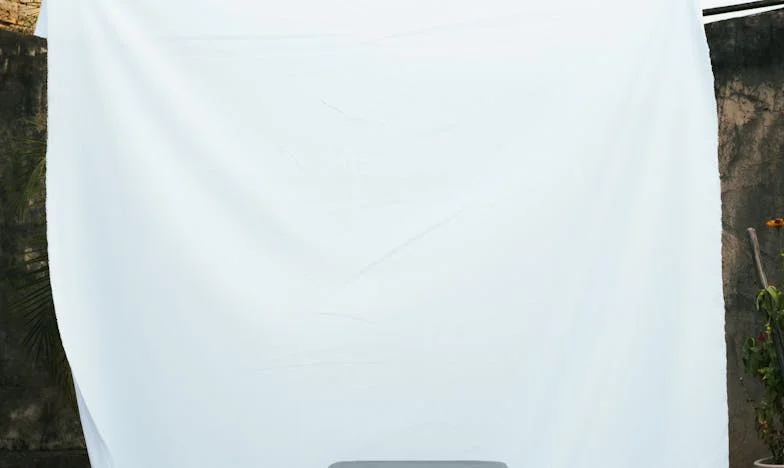One Month Notice: When Home Turns Hostile
“You have one month to get out of my house!” Barbara’s words echoed through the kitchen, sharp as shattered glass. My mug clattered against the counter, coffee splashing onto my trembling hands. Kacper stood frozen beside me, his face pale, lips parted in disbelief. Silence pressed on us, heavy and suffocating, broken only by the ticking clock above the stove.
I never imagined my life would come to this: my mother-in-law, Barbara Nowak, the woman I’d always admired, was kicking us out. Just two years ago, Kacper and I were newlyweds, moving into Barbara’s neat little ranch in suburban Illinois, wrapped in hope and gratitude. She greeted us with open arms, her laugh warm, her advice always gentle. “You treat my son right,” she’d teased at Thanksgiving, squeezing my shoulder. “And you’re already my daughter.”
Now, her eyes were cold, her jaw set. “Barbara, please—” I tried, but she cut me off. “No. I’ve made up my mind.”
Kacper finally found his voice. “Mom, what’s going on? We pay rent, we help with the bills. Why now?”
Barbara’s gaze flickered, just for a second. “It’s time for you both to stand on your own feet. I need my space. I’m not running a boarding house.”
A month. Thirty days to find a new home in a market where rent was skyrocketing and every apartment listing disappeared before you could even schedule a viewing. I wanted to scream, to beg her to reconsider, but pride held my tongue.
That night, Kacper and I lay side by side in the cramped guest room that had become ours. The air between us was thick, words unspoken. “I thought she loved me,” I whispered into the darkness.
“She does,” Kacper said, though he didn’t sound convinced. “She’s just… stubborn. Maybe she’s lonely since Dad died.”
His father had passed away the year before our wedding. Since then, Barbara had filled her days with church groups, gardening, and, it seemed, quietly resenting our presence. I remembered her slamming cabinets a little harder, sighing when we left dishes in the sink, mentioning how nice it would be to have her house “just so” again.
The next morning, Kacper left early for his job at the auto shop. I found Barbara in the kitchen, scrubbing the counter as if she could erase the tension. I hesitated at the doorway. “Barbara, can we please talk?”
She didn’t look up. “There’s nothing to discuss. I’m sorry, Emily, but I need you both gone.”
“I don’t understand. Did I do something wrong?”
She finally faced me, her eyes red. “No. But this isn’t your home. Not really. I’ve given enough. I need to think about myself for once.”
I felt my heart crack. All the times I’d stayed late at work so we could afford groceries, the overtime Kacper put in, the little ways we tried to help—suddenly, none of it mattered. Barbara wanted us out.
Finding an apartment felt impossible. Every night, Kacper scrolled through listings, his frustration mounting. “Two grand for a studio? In this town?” he muttered. My job at the library barely covered our car payment. Kacper’s hours were never steady. Each rejection—”Sorry, already leased,” “No pets allowed”—tightened the vise around my chest.
One night, after another argument over money, I broke down. “Maybe we could stay with my mom,” I suggested, voice small. Kacper shook his head. “Fifteen hundred miles away in Arizona? My whole life is here. My job, my friends.”
We stopped talking to Barbara except for tense, polite exchanges. She withdrew, spending evenings alone in her room. I searched her face for a hint of regret, but found none. The woman who once called me her daughter now treated me like a stranger.
With a week left, panic set in. I sat on the porch, knees pulled to my chest, when Barbara joined me. She carried two mugs—coffee for me, tea for her. For a moment, we just listened to the cicadas.
“I know you hate me now,” she said quietly. “But after your father-in-law died, I lost myself. I thought having you both here would help. But it just reminded me of what I’d lost. I’m sorry.”
I swallowed hard. “We never meant to make you feel worse. We just… we needed family.”
She nodded. “You’ll land on your feet. You’re strong, Emily. Stronger than you know.”
The words were meant as comfort, but they felt like a final shove out the door.
Our last day, we packed our battered sedan with everything we owned. Kacper hugged his mother, stiff and awkward. I hesitated, then reached for her. She hugged me back, fiercely, whispering, “I hope you find your home.”
We slept in the car that night, parked behind a Walmart. Kacper held my hand as I cried, both of us staring at the ceiling, wondering how it had come to this. The next week was a blur of couch surfing, job interviews, and desperate phone calls. Eventually, we found a tiny basement apartment—moldy, overpriced, but ours. We scraped by, paycheck to paycheck, learning what it meant to build a life from scratch.
Sometimes I think about Barbara, alone in her perfect, silent house. Sometimes I miss her, the woman I thought I knew. Other times, I feel nothing but anger.
But mostly, I wonder: what makes a home? Is it where you feel safe, or is it the people you love—even when they hurt you? And how do you forgive someone who took everything, just when you needed them most?
